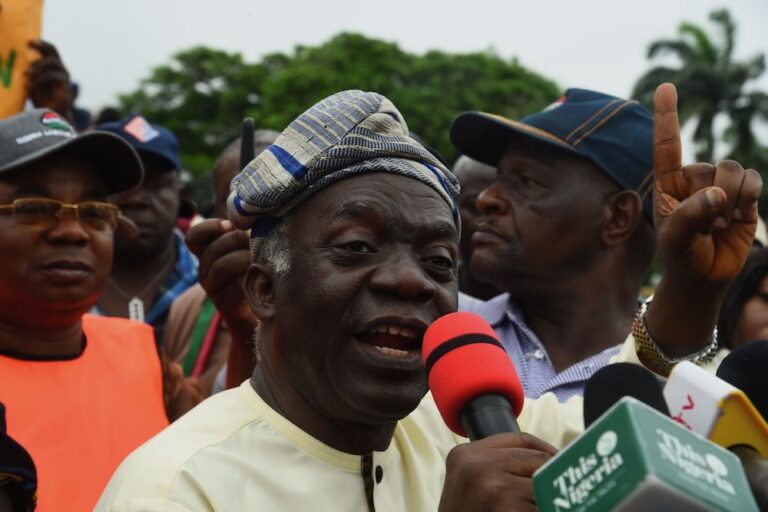Nigeria’s National Broadcasting Commission (NBC) is contesting a high court ruling, which has blocked the regulator from sanctioning broadcasters.
This statement was originally published on mediarightsagenda.org on 15 May 2023.
Media Rights Agenda (MRA) today called on the National Broadcasting Commission (NBC) to comply fully with the orders of Justice James Omotosho of the Federal High Court in Abuja, which restrained it from further imposing fines on radio and televisions stations, saying even if it plans to appeal against the judgment, it should not continue to walk the path of lawlessness.
In a statement issued in Lagos, MRA said its attention had been drawn to a statement credited to NBC Director General, Mallam Balarabe Shehu llelah, vowing that “The Commission will appeal against the judgement when it is found to be in conflict with previous judgements of the court, which empowers the Commission to regulate broadcasting in Nigeria (sic).”
MRA’s Executive Director, Mr. Edetaen Ojo, said in its statement that: “We recognize and respect the right of the NBC to appeal against the judgment of the Court, if it is dissatisfied with the decision, so long as it does not flout the orders of the court when those orders have not been set aside by an appellate court. Whatever the NBC’s view of the Court’s judgment may be, it cannot deny that there is a valid and subsisting order of a court of competent jurisdiction prohibiting it from imposing fines on radio and television stations. Should the Commission or its Director-General take it upon themselves to sit on appeal over the judgment of the Court and disobey the clear and unequivocal orders of the Court, we wish to reassure them that we would take immediate and vigorous action to maintain the integrity of the court and its orders.”
According to Mr. Ojo, “The NBC Director-General’s statement amounts to a feeble attempt to mislead the public. We do not dispute the power or authority of the NBC to regulate broadcasting in Nigeria and we have not challenged its right to do so. That was not the issue before the court. But this does not make the Commission a court of law and neither the National Broadcasting Commission Act, as amended, nor the Nigeria Broadcasting Code can be interpreted to confer judicial powers on the NBC to impose criminal sanctions on radio and television stations in flagrant violation of the Constitution, as Justice James Omotosho stated so eloquently in his judgment.”
He noted that besides being a correct interpretation of the provisions of the Constitution, the decision of Justice Omotosho is also consistent with international standards for the regulation of broadcast media as contained, for instance, in Principle 17(5) of the Declaration of Principles on Freedom of Expression and Access to Information in Africa, which states that: “The powers of regulatory bodies shall be administrative in nature and shall not seek to usurp the role of the courts.”
Mr. Ojo contended that the provisions of the Declaration are binding on Nigeria and its institutions, being an affirmation of the principles for anchoring the rights to freedom of expression and access to information in accordance with Article 9 of the African Charter on Human and Peoples’ Rights, an international human rights instrument to which Nigeria is a State Party, and which also forms part of Nigerian Law, having been domesticated in Nigeria by the African Charter on Human and Peoples’ Rights (Ratification and Enforcement) Act, Cap A9, Laws of the Federation of Nigeria, 2004.
He said: “We appreciate that the NBC cannot be happy that we have shut down this major source of revenue for the Commission, but we urge it to tread the path of constitutionalism and the rule of law and obey the orders of a court of competent jurisdiction, established by the Constitution, especially if it expects individuals and entities subject to its regulatory authority to comply with its own lawful directives. The NBC will be courting anarchy should it decide to disregard the court’s orders.”



